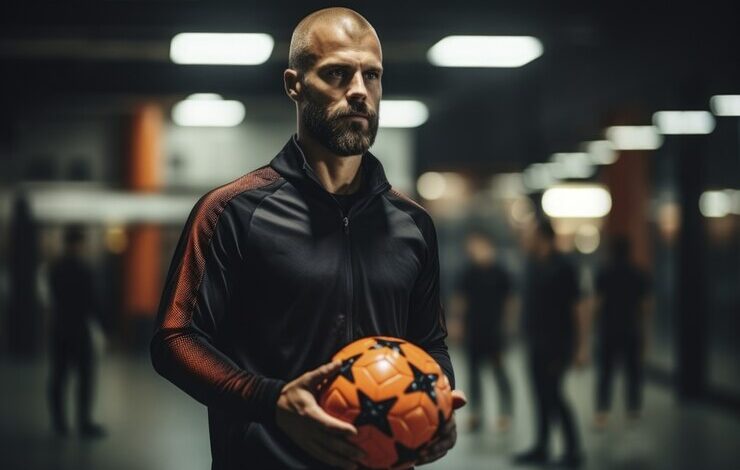How to Become a Sports Agent: A Step-by-Step Guide for Beginners

Become a sports agent is an exciting and rewarding career choice, especially if you love sports and want to help athletes succeed. If you’re wondering how to become a sports agent, the journey requires a mix of passion, skills, and knowledge. This guide will walk you through the essential steps to start your career as a sports agent.
Sports agents work behind the scenes, helping athletes get the best contracts and deals. They negotiate with teams, sponsors, and media companies to make sure their clients are taken care of. If you’re interested in learning how to become a sports agent, keep reading to discover the skills, education, and experience you’ll need to succeed in this competitive industry.
What Does a Sports Agent Do? Understanding the Role of a Sports Agent
A sports agent is responsible for helping athletes negotiate contracts and secure deals that benefit their careers. This job requires a deep understanding of sports law, contract management, and strong negotiation skills. Sports agents are more than just dealmakers. They serve as mentors, advisors, and sometimes even counselors for their clients.
The role of a sports agent is varied. They negotiate contracts, secure endorsements, and manage media appearances. A successful agent must be an excellent communicator who can build strong relationships with athletes and sports teams. They often work long hours, especially during contract negotiations or big sporting events. The ability to stay calm under pressure and think creatively is important in this field.
A good sports agent also helps athletes with off-the-field opportunities. This might include securing sponsorships or guiding them through personal branding. Sports agents need to understand how to balance an athlete’s career growth with personal interests, ensuring long-term success.
How to Become a Sports Agent: The Essential First Steps
To begin your journey as a sports agent, the first thing you need is a strong foundation in education. Most agents start by earning a bachelor’s degree in sports management, business, or law. While a specific degree isn’t mandatory, having knowledge of sports, business, and contracts is essential to succeed in this field.
Another key step is to gain experience through internships. Many successful sports agents start by interning with established agencies. This hands-on experience helps you understand how the industry works and gives you the opportunity to build connections.
It’s also important to research the licensing requirements. Some states or organizations require sports agents to pass certification exams or obtain a license to represent athletes in specific sports. For example, the NBA and NFL have their own certification processes. Understanding these requirements early on will save you time in the future.
Education Requirements: What to Study to Become a Sports Agent
When it comes to education, aspiring sports agents often pursue degrees in fields like sports management, business, or law. A degree in these subjects will give you an understanding of contracts, negotiations, and the legal aspects of sports. However, you can also succeed without a formal degree if you have the right experience and networking connections.
Courses in communication, marketing, and public relations are also beneficial for agents. As an agent, you’ll be responsible for marketing your clients and helping them build a public image. Taking these courses will prepare you for those aspects of the job.
In addition to a degree, gaining knowledge of sports law can be a huge advantage. This will help you understand the rules and regulations that apply to contracts, endorsements, and other legal matters that you’ll deal with daily as a sports agent.
How to Build Relationships and Gain Clients as a Sports Agent
One of the most important skills for a sports agent is building relationships. To gain clients, you must earn the trust of athletes, coaches, and team managers. It’s not just about knowing the right people, but about establishing long-term, reliable connections.
Here are a few tips for building relationships in the sports industry:
- Attend sports events and networking meetings.
- Reach out to athletes at early stages in their careers.
- Stay active on social media to connect with potential clients.
Successful agents often use word-of-mouth referrals to attract new clients. Once you’ve established a reputation for being trustworthy and knowledgeable, athletes are more likely to approach you.
The Role of Negotiation in Becoming a Successful Sports Agent
Negotiating contracts is one of the core duties of a sports agent. This includes negotiating salaries, sponsorship deals, and personal contracts for athletes. Being a good negotiator means you must understand what your client wants and be able to communicate that effectively to the other party.
A good sports agent needs to:
- Negotiate fair terms for the athlete while keeping their long-term goals in mind.
- Understand both the athlete’s value and the financial situation of the team or sponsor.
It’s important to stay up-to-date with the latest trends in sports contracts, as the industry evolves over time. Some agents also focus on specific sports, gaining expertise in areas like endorsement contracts, media rights, and branding.
Understanding Contracts: Key Skills for How to Become a Sports Agent
Contracts are at the heart of a become a sports agent work. You’ll need to understand not only the terms of the contract but also any clauses that can affect your client’s future. These might include salary bonuses, performance incentives, and media obligations.
Here’s what you should pay attention to when reviewing contracts:
- Endorsement deals: These contracts often involve athletes promoting products or services.
- Performance bonuses: Agents must ensure these bonuses are achievable and beneficial for the athlete.
- Media agreements: Many athletes also sign deals for interviews or media appearances.
By understanding all these factors, you can help athletes make informed decisions and avoid any pitfalls.
Important Clauses to Watch in Sports Contracts
- Bonuses and incentives
- Media and public appearance requirements
- Duration of the contract
Conclusion
Become a sports agent is a rewarding career if you love sports and helping athletes succeed. It takes hard work, strong communication skills, and a deep understanding of contracts and negotiations. By following the steps in this guide, you can start your journey toward becoming a successful sports agent.
Remember, building good relationships and gaining experience through internships is key to getting started. With dedication and a passion for sports, you can help athletes grow their careers and make big deals in the sports world.
FAQs
Q: What is a sports agent?
A: A become a sports agent helps athletes get contracts, endorsements, and other deals while guiding them in their careers.
Q: How do I become a sports agent?
A: To become a sports agent, you need a degree in sports management or law, and experience through internships or networking.
Q: Do I need a license to be a sports agent?
A: Yes, some sports leagues require agents to get certified or licensed to represent athletes, such as the NBA or NFL.
Q: How much money can a sports agent make?
A: become a sports agent can earn money through commissions, which are usually a percentage of the athlete’s contract, ranging from 1-10%.





